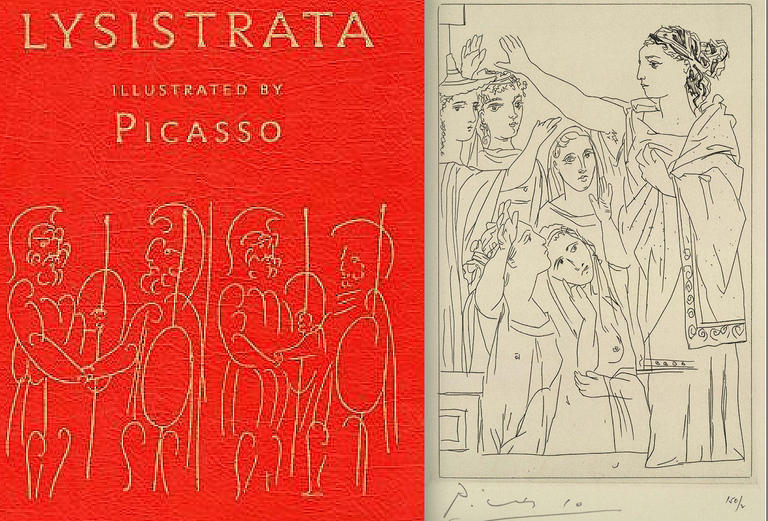
“First, give the fleece a bath to dunk away the sheep dung.
Spread your city on a bed
Next, and beat out all the layabouts and briars.
Then card out any clumps – you know, the cliques of chumps,
Magistracy-mongers. Pluck their little heads off.
Comb what’s left into a single goodwill basket.
Wad in your resident aliens and other
Nice foreigner, and don’t leave out public debtors.
And heck, as for the city’s scattered colonies,
I want you to construe them as neglected tufts,
Each on its lonesome. Gather them all together,
Bunch them up tight, and finally you’ll have one
Big ball. Use it to weave the city something fine.”
Aristophanes, 411 B.C.E
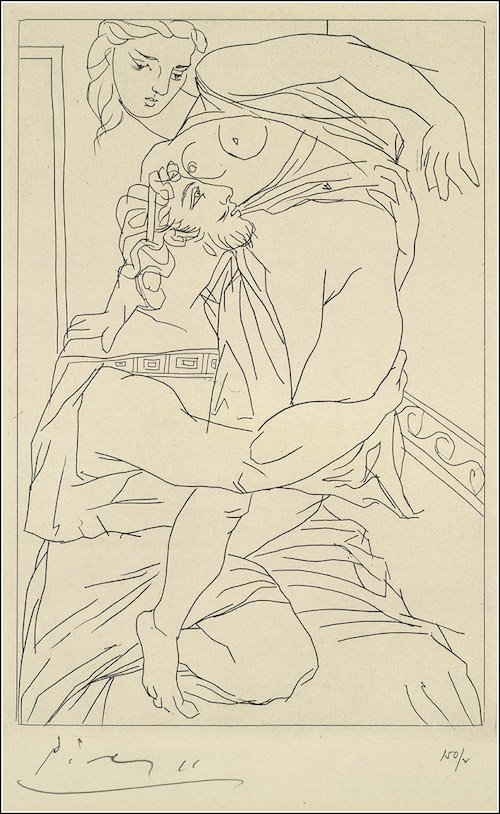
The ancient Greek playwright Aristophanes’ play Lysistrata presents issues of gender roles, war, corruption, and power. In this comedy, the only weapon women have to end the war being fought in the play is sex. By refusing to have sexual intercourse with their husbands, the wives hope that their husbands will come to terms for peace so that these men will be able to have sexual relations with their wives again. In an intense and passionate scene Lysistrata instructs the councilor step by step how to bring peace and order back into the city by using the metaphor of wool and weaving. To express his ideas through the words he assigns to Lysistrata, Aristophanes employs a diction and short sentences to lend a commanding and authoritative tone to her words. At the same time, the playwright’s use of such diction and syntax to underscore the role of gender seems to me to diminish the power of her message.
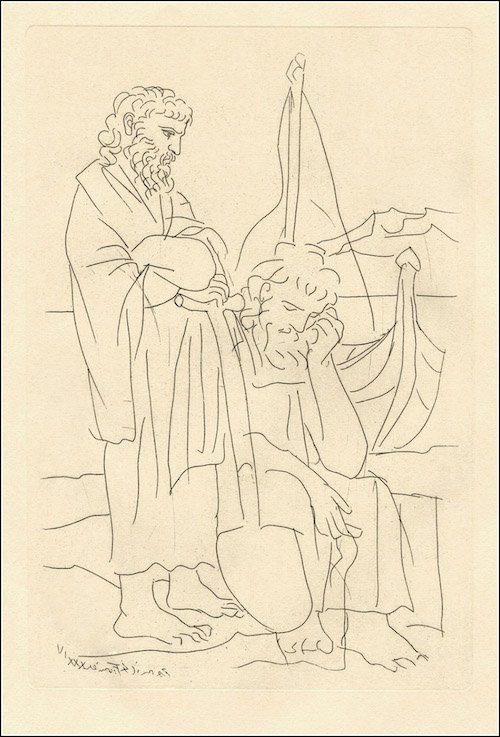
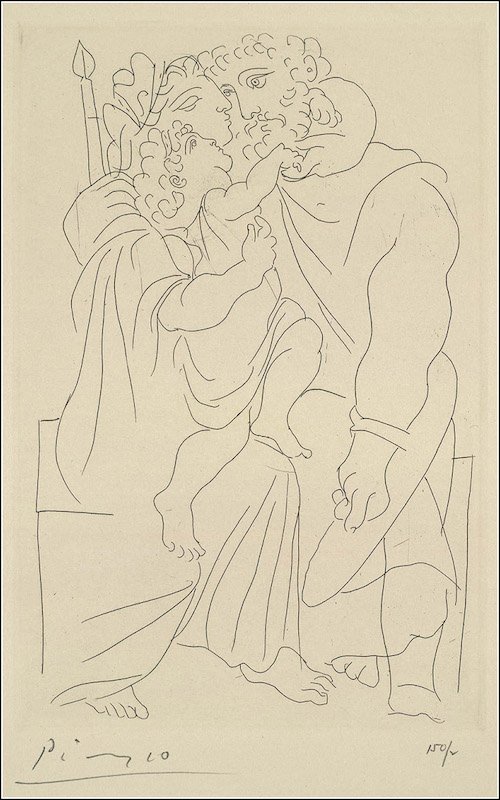
Lysistrata suggests cleaning out the city to get rid of all the “layabouts and briars,” that is, all the men who are not moving the work of the state forward. If any man is not making progress toward achieving peace and collaborating with others to attain a better future for the state and its people, then he is a waste and a burden to the state and should be either removed or straighten up. (581) She also mentions “magistracy-mongers,” referring to a corrupt government. and to “debtors” whose debts should not be discharged by the authorities, but who rather should be held accountable for those debts. (582-585). Lysistrata continues by saying, “I want you to construe them as neglected tufts, each on its lonesome. Gather them all together, bunch them up tight, and finally, you will have one big ball. Use it to weave the city something fine.” (588-90)
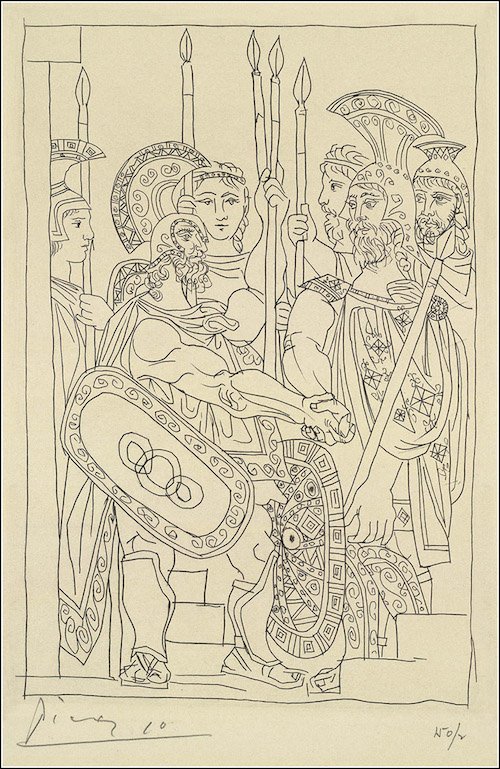
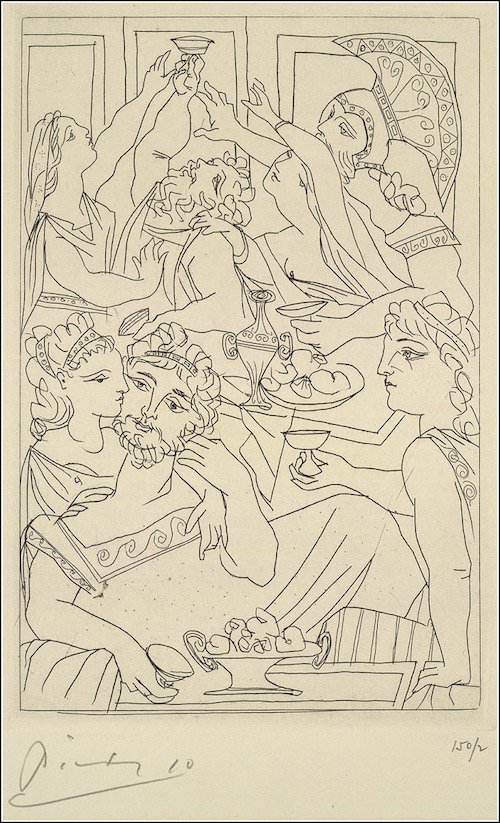
Aristophanes then presents a different Lysistrata. She is more serious. Her independent plan has a less comedic execution for ending the war and restoring peace. She does not enlist the help of women to carry out her plan, but rather directs her attention toward men, saying, “Spread your city on a bed.” (579). If men are as passionate as they have been portrayed to be, having a strong desire for sex while their wives were depriving them of it, then the war would end. This passage demonstrates the capacity of a woman to think clearly to bring order to a city and to be able to rule it. In that era, women were expected to be at home caring for the children and preparing the meals. This play, in contrast, presents women acting against conventional norms to bring about peace and end war.
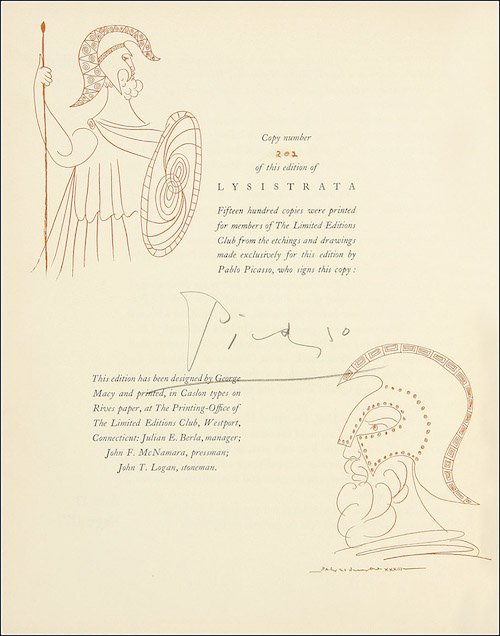
"We do not need magic to change the world, we carry all the power we need inside ourselves already: we have the power to imagine better." — J.K. Rowling
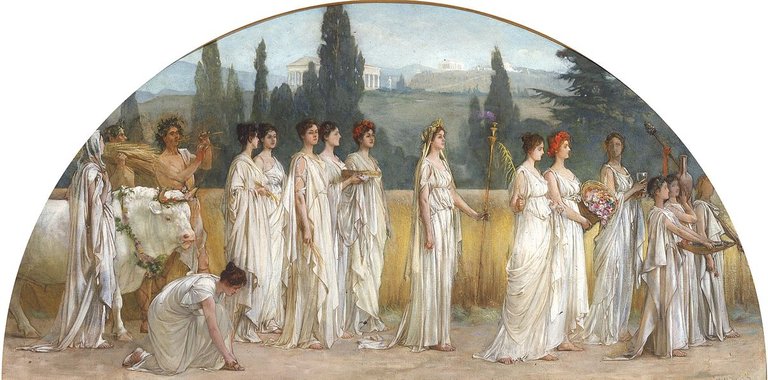
Aristophanes. Lysistrata. Heritage Press, 1962. Illustrated by Pablo Picasso.
Aristophanes. Lysistrata. The Norton Anthology: Western Literature. Ed. Peter, Simon.
New York: WW Norton & Company, Inc. 2014. (578-90)
Congratulations @correspondent! You have completed the following achievement on the Steem blockchain and have been rewarded with new badge(s) :
Click on the badge to view your Board of Honor.
If you no longer want to receive notifications, reply to this comment with the word
STOPDo not miss the last post from @steemitboard:
Thank you!